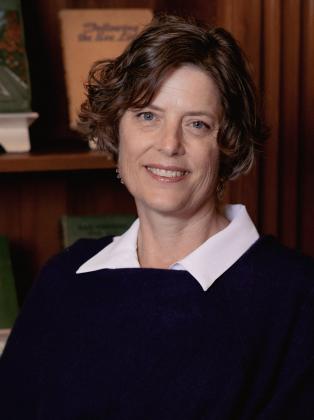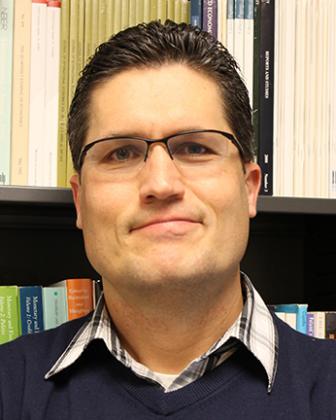Center Affiliates Launch Major Interdisciplinary Research Projects with UC Davis Grant
November 12, 2013
DAVIS, Calif. — Center for Poverty Research faculty affiliates have launched three major projects funded by the 2013 UC Davis Interdisciplinary Frontiers in the Humanities and Arts (IFHA) grants competition.
These three projects won more than $1.3 million in the funding this past June to support interdisciplinary research projects led by Center for Poverty Research director Ann Huff Stevens, deputy director Marianne Page, and faculty affiliate Giovanni Peri.
“The support from UC Davis for these research projects will allow us to expand the Center’s current interdisciplinary research and training programs and build on our base funding,” said Stevens.
Peri’s research cluster, “Managing Temporary Migrations: California, US and the World” has already hosted four events at UC Davis in October and November, including seminars and a research conference. The Center-affiliated research clusters have hired graduate student researchers and have been meeting to plan upcoming events.
“We are using the research money to extend our interdisciplinary quantitative and qualitative collaborative research, to deepen our understanding of temporary migrations and to produce high-quality and research-based policy analysis,” said Peri.
IFHA is part of the new UC Davis Interdisciplinary Frontiers Program (IFP), an initiative of the Office of Research to promote research and scholarly activities on campus that reach across disciplines. IFHA awarded $3.6 million this year to seven clusters across the arts, humanities and social sciences. Last November, the IFP Research Investments in the Sciences and Engineering (RISE) program awarded $10.9 million to projects across the science and engineering disciplines.
“Interdisciplinary research teams are critical to crafting transformative theories and approaches to the complex cultural, humanistic, and social problems facing today’s individuals and societies,” wrote Harris Lewin, vice chancellor for research at UC Davis, in a statement accompanying the IFHA award notification.
Center director Stevens and faculty affiliate Michal Kurlaender from the School of Education lead the cluster “California Community Colleges, Vocational Programs and Workforce Development: Improving the Workforce and Improving Lives.” Joining Stevens are Center faculty affiliates Victoria Smith, Jean Stratford, Heather Rose, Kimberlee Shauman, Scott Carrell and deputy director Page.
“Most existing work on community colleges focuses on their other main role—preparing students for transfer to traditional four-year colleges,” said Stevens. “In contrast, there is a dearth of research on the impact of specific community college vocational courses and programs on individual outcomes.”
Vocational training has been a hot topic since the White House announced an $8 billion federal program to forge partnerships between community colleges and business for worker training.
Page leads the cluster “Understanding the Long-Term Effects for Children in Economic Distress.” With Page on this project are Center faculty affiliates Katherine Conger, Paul Hastings, Amanda Guyer, Ross Thompson and Center director Stevens. With graduate students and expert faculty from across the social sciences, they will focus on children whose families are hit by economic downturns. Child poverty is a major problem in the United States, a country with lower rates of social mobility than any other developed nation.
“These disciplines are currently attempting to understand the relationship between economic resources and child development from completely different angles and in nearly total isolation,” said Page. “This research cluster is designed to overcome these barriers and to produce a more holistic understanding the impact of economic crises on children’s long run well-being.”
Both awards extend collaborations already begun with two major conferences the Center hosted in 2013. In January hundreds attended “The Role of Community Colleges in Workforce Development for Low-skilled Workers,” which was co-sponsored by the UC Davis School of Education. Most recently, the conference “Poverty and the Long-term Effects of Early Life Experiences” brought social sciences researchers from around the country.
These projects will expand the number of graduate student researchers the Center supports. Each year they will support two postdoctoral researchers, a number of graduate student researchers, and will also provide paid research opportunities for undergraduate students. The project led by Stevens has also included additional training opportunities for Graduate Student Researchers and undergraduates working with the Center, including a workshop on writing for policy-makers.
About the Center for Poverty Research
The Center for Poverty Research at the University of California, Davis is one of three federally designated centers whose mission is to facilitate and disseminate non-partisan academic research on poverty in the U.S. and to train the next generation of poverty scholars. Our research agenda focuses on labor markets and poverty, children and intergenerational transmission of poverty, the non-traditional safety net, and immigration.
The Center was founded in September, 2011 with core funding from the Office of the Assistant Secretary for Planning and Evaluation in the U.S. Department of Health and Human Services.
For more information, email us at povertycenter@ucdavis.edu or visit the Center online at: poverty.ucdavis.edu.











